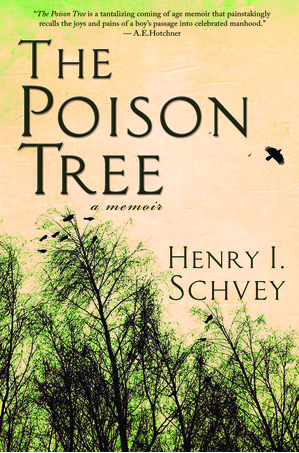“Judging the Book by Its Cover,” Excerpt from -(Not Quite) Out to Pasture- Available in September
Share the post "“Judging the Book by Its Cover,” Excerpt from -(Not Quite) Out to Pasture- Available in September"
 by Curtis Comer
by Curtis Comer
“So, does your wife ever come up here?”
Tim and I were sitting at the bar of our favorite South City pizza joint and the pretty girl was addressing Tim. I had already picked up that she was flirting with my partner, but her question proved my suspicions beyond doubt. Our friend, Erin, laughed out loud and pointed at me saying, “Yeah, she’s sitting right there!”
I later related this story to friends and the discussion quickly turned to the subject of perceptions. While quite a few of our friends assured us both that neither of us “looked gay” or that we didn’t “act gay,” my niece, Bekkah, ever the straight shooter, didn’t mind being blunt.
“Oh, sure,” she said, nonchalantly, “it’s obvious you’re gay!”
I wasn’t sure if I should have felt offended or not. I came out of the closet a long time ago, so whether or not I am gay had long ceased to be a question in my mind. Admittedly, I’ve never considered myself to be the manliest guy in the room. After a few too many drinks, I can turn from my normal, quiet self to something more akin to the offspring of Charles Nelson Reilly and Paul Lynde. If that’s not enough, let me add that it was Bekkah who taught me how to use jumper cables. (My dad claims to have taught me before that. All he really taught me was how to hold a flashlight.) In any event, having strangers know my “gayness” by just looking at me is somehow bothersome. I mean, I was taught by my mother to never judge a book by its cover and here I was being judged by my niece and God knows who else.
“What’s that supposed to mean?” I asked.
I suddenly noticed my body language.
Hands off the hips, I told myself. Hands off the hips, for God’s sake!
“I don’t know,” explained my niece, “it’s just the way you carry yourself…your style.”
Now it’s not as if I wear an ascot or a turban or anything showy that could be construed by anyone as “homosexual” in style. In fact, especially during the summer months, I usually wear the same pair of cargo shorts until they fall apart. I see frat boys dressed more effeminately than me, but I decided to drop the matter. Besides, this wasn’t the first time I had been called out on the matter.
A few years earlier, Tim and I walked into a South City bar for a beer. As we approached the bar to order, the bartender, a woman in her fifties who possessed the gruffness of a seasoned sailor, looked us up and down.
“You two together?” she asked.
I swallowed and looked around the dark bar, which was filled with blue collar workers, drinking after a day of hard work.
“Yes,” we admitted.
“Good,” she replied, passing us two beers. “Because if you weren’t I was going to say you should be!”
The strange thing about the bartender’s assumption was that Tim and I rarely exhibit any sort of physical affection in public. It’s not because we don’t want to, but that we learned a long time ago to be aware of our surroundings.
The question of public display of affection could only be answered by Kris, the “Destroyer of Preconceived Notions.”
“Yes, I’ve noticed that you guys don’t show much affection in public,” she confirmed, “and, yes, that bothers me. What would bother me more,” she continued, “is if you refrained from showing affection just because you felt scared. That would be really sad.”
Those words filled me with shame because it is a big part of our hesitancy to show public affection. In San Francisco, the supposed “land of milk and honey” for gay men and women everywhere, we learned that it was best to limit physical contact to our apartment or our rare visits to the Castro because one night, walking home from a party, we made the simple mistake of holding hands and were physically attacked while walking up Market Street. We reasoned, if that could happen in San Francisco, who knew what could happen to us back in the Midwest? Frankly, we just don’t want to have our brains beaten out.
Still, there’s another issue involved, the issue of respect. As wrong as it may be, I hate the idea of making people uncomfortable, especially those people who are at least making an effort to be accepting of us.
On this point, Kris only had one thing to say.
“You guys are too damned nice.”
So, maybe our lack of hand-holding and hugs does make us difficult to read. That poor girl at the pizza place assumed we were good friends. Not her fault. Still, that didn’t explain why other people automatically assumed we were gay.
In the end, if it’s so obvious to the casual observer that I’m gay, I suppose that my reservations about showing how I feel are irrelevant. People are going to see what they see, no matter what I do. Honestly, I’m no better or worse than anyone else when it comes to the sin of judging based on appearances. For example, I recently met a guy at a South City bar and just knew he was gay. He sashayed around the bar like Phyllis Diller on crack, spoke in a high-pitched voice and laughed loudly at his own jokes, even the jokes that weren’t funny. Basically, he made me look like Clint Eastwood.
Then he mentioned his wife.
Your wife? I wanted to ask. I wondered if “wife” wasn’t a euphemism for Big Hairy Daddy Bear, but a friend confirmed that this dude was, in fact, straight.
Frankly, I don’t think I’m to blame for being confused. I blame a lot of it on the emergence of the so-called “Metro-sexual” style that appeared in the 1990s. Suddenly, straight guys were tweezing their eyebrows, actually paying attention to their clothing, wearing trendy eyeglasses and even manscaping. Lipstick lesbians had been challenging enough (give me a good, old fashioned Bull Dyke any day, thank you), but the new trend among hetero men was downright mindboggling.
And, even though there are Straight Acting Gays (SAG) and Gay Acting Straights (GAS) confusing everyone, there is a whole litany of types and sub-types within the gay community, further confusing matters for the uninitiated: bears, bear cubs, twinks, leather daddies and the venerable queens. This last type is, I believe, used too freely in the community but can be most adequately defined as “a usually older gay man who is identified by the way he carries himself and by his distinctive style.”
Oh. That’s what my niece was calling me.
For those of you who thought that the acronym SAG stood for “Screen Actors Guild,” you’re queens, too.
It takes one to know one, after all.


